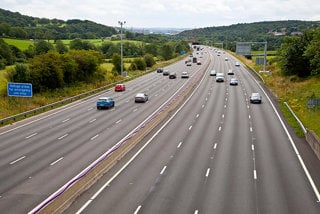Post pandemic travel patterns will be a key consideration for fleet decision-makers when predicting future mileage for new company car leases, says FleetCheck.
With more people working from home and many businesses expecting this to continue, leasing providers have predicted that car travel will, inevitably, reduce.
Even before the coronavirus pandemic struck, the FN50 was reporting a dip in average replacement cycles.
One year ago, cars were being replaced, on average, every 36 months and at 52,377 miles.
Figures from FN50 2020, showed that the replacement cycle had stayed the same at 36 months. The average mileage, however, had fallen below the 50,000 mark for the first time and stood at 49,944 miles, 2,433 fewer.
Peter Golding, managing director at FleetCheck, says fleets believed company car mileage would remain lower than pre-coronavirus levels but were unsure by how much.
He explained: “Most company cars have covered a fraction of their usual mileage in the last 12 months because of the pandemic and, with the growth of videoconferencing as an alternative, it’s generally thought that the majority will not return to the kind of distances seen in the past.”
Golding says that very few organisations are talking about getting rid of their fleets altogether, because they recognise the contribution that they make to their business – while fewer trips might be made, those that are still being made remain essential or important.
However, he added: “There are questions to be answered and the biggest of these is based around ‘rightmileaging’ – ensuring that employers take out leases that match future usage.
“Obviously, the difference between a 20,000 mile a year lease and a 12,000 mile one is substantial, especially extrapolated across a whole business, so it is important to get this right.”
FleetCheck is recommending to its user base that it took a proactive approach to this situation. “Our view is that businesses shouldn’t wait to see what develops because the outcomes are likely to be haphazard, with some drivers choosing to return to their old mileage levels and others being more considered,” he said.
“We’d like to see fleets introduce guidance around when journeys should be undertaken instead of leaving things up to employees.”
Golding doesn’t believe it is unreasonable for employers to suggest, for example, that monthly client meetings should not all take place face-to-face and should instead use a combination of video conferencing and in-person meetings.
He concluded: “We expect to see more discussion about this in the coming months and certainly we’re helping some of our clients with their rightmileaging requirements, looking at how they should manage drivers and business needs.”























Login to comment
Comments
No comments have been made yet.